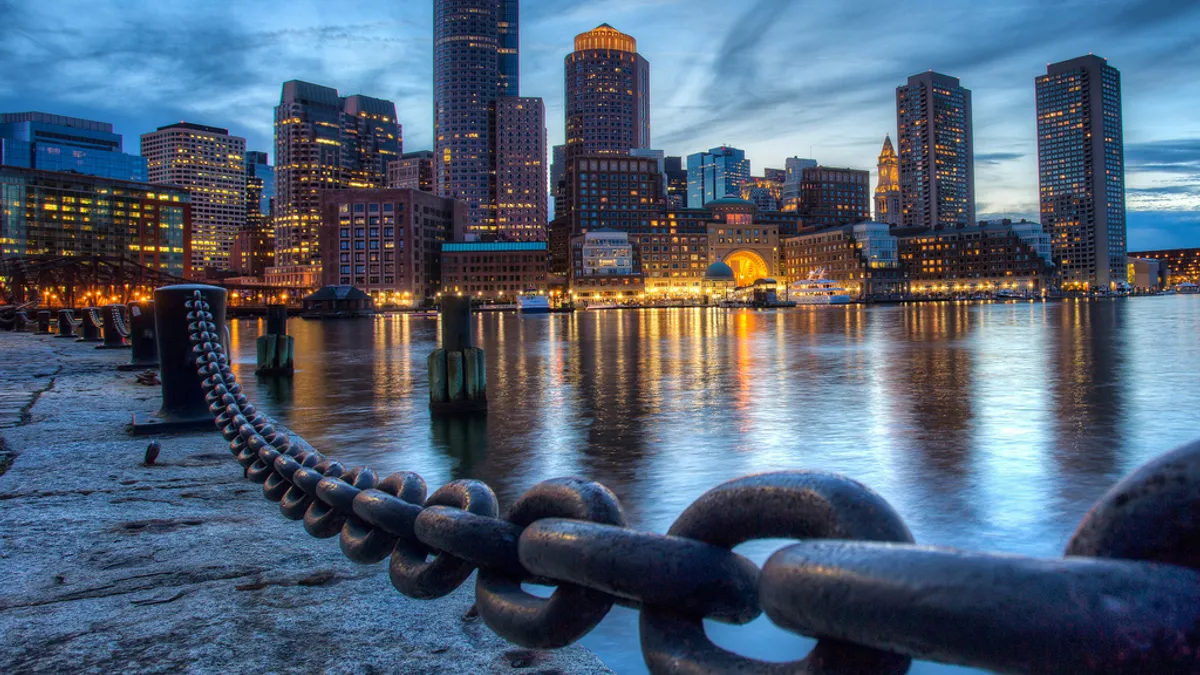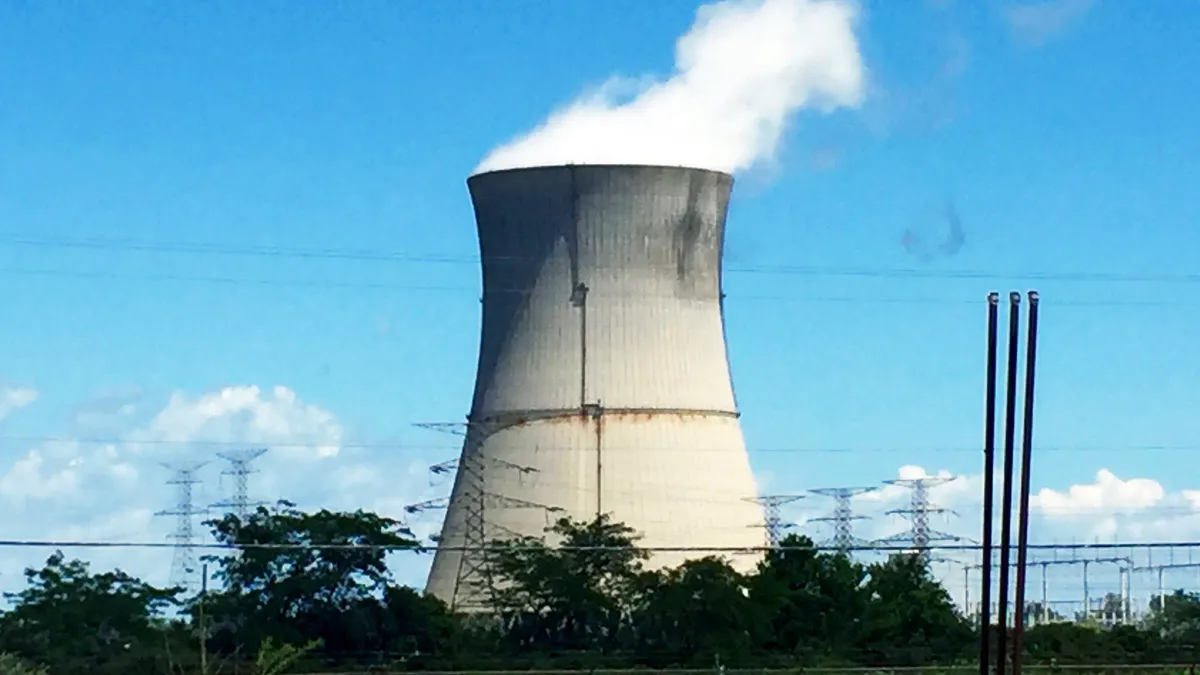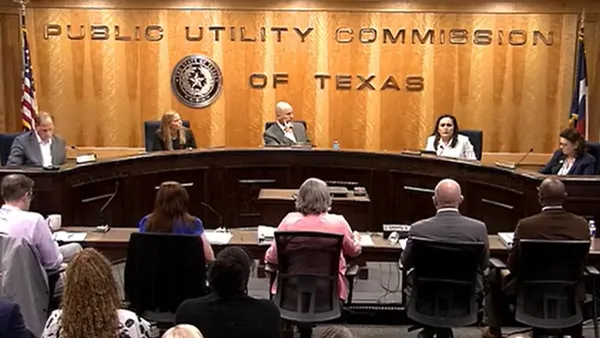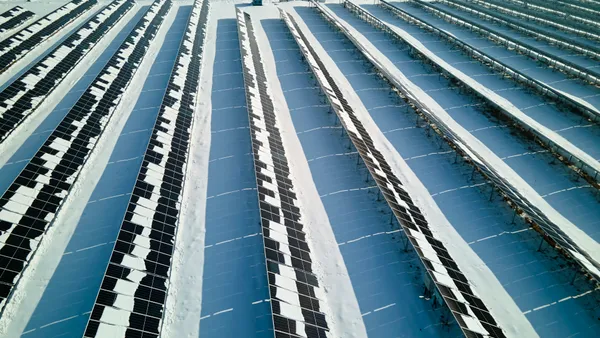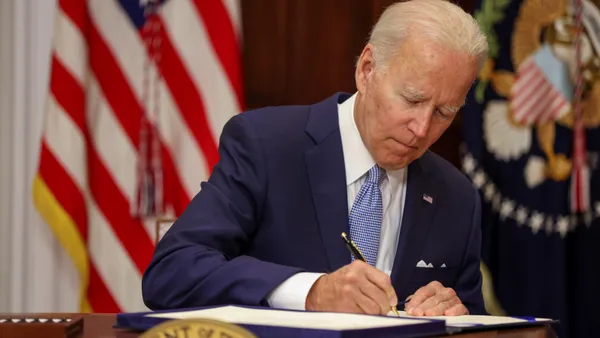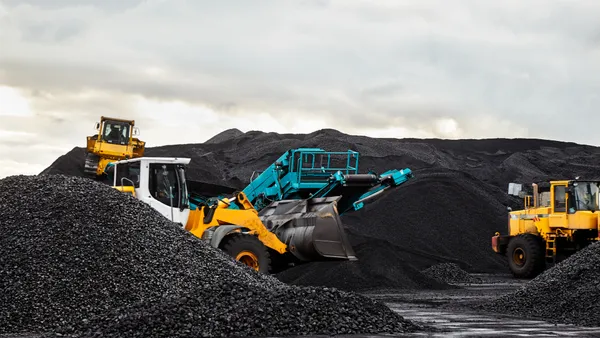Dive Brief:
- Massachusetts issued final regulations Aug. 11 aimed at reducing greenhouse gas emissions 25% below 1990 levels by 2020 and 80% by 2050, as required by the state's Global Warming Solutions Act, passed in 2008.
- The regulations were issued to comply with a Massachusetts Supreme Judicial Court decision last year that concluded the state was not doing enough to reduce greenhouse gas emissions.
- The regulations address six key areas, including reducing methane emissions from gas distribution lines, increasing renewables through development of a Clean Energy Standard, and reducing carbon dioxide emissions from power plants.
Dive Insight:
After the Massachusetts Supreme Judicial Court concluded the state would not meet its emissions reductions commitments without additional efforts, officials began developing new regulations. Gov. Charlie Baker (R) called climate change "a top priority of our administration," and called for "collaboration across state government and with stakeholders throughout Massachusetts."
According to an Aug. 11 statement from the governor's office, as of 2014, the state had reduced emissions 21% below 1990 levels — leaving about 4% to go, ahead of the 2020 deadline.
"The six final regulations announced today will, along with other Commonwealth climate policies, ensure that this goal is achieved by addressing emissions from the natural gas distribution network, the transportation sector, the electric sector, focusing on generation and consumption, and gas insulated switchgear," the statement explained.
The regulations address: carbon dioxide emissions limits on fleet passenger vehicles; Global Warming Solutions Act requirements for transportation; reducing methane emissions from natural gas pipelines, reducing carbon dioxide emissions from power plants, and reducing sulfur hexafluoride emissions from gas-insulated switchgear.
The lawsuit pressing Massachusetts to step up its greenhouse gas work was backed by advocacy group Our Children’s Trust, along with Conservation Law Foundation and the Mass Energy Consumers Alliance.
A Sept. 16, 2016, executive order issued in the wake of the court decision and calling for new regulations, also directed the state to begin planning for climate change adaptation "and working with cities and towns across the state to assess vulnerability and build resiliency to address climate change impacts."
While the Sierra Club commended the Baker administration for the work, the group also said the new regulations did not go far enough.
"We are disappointed that the two biggest sources of carbon pollution, the transportation and heating sectors, received such short shrift," the group said in a statement. " We won’t achieve our climate goals without significant progress on transportation, so Massachusetts should work with other states in the region to put a price on carbon pollution from the transportation sector. These regulations fall short of what is needed.”



